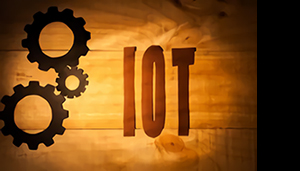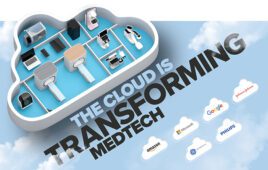We asked some device experts to share their toughest lessons from IoT in the medical space. (These experts will be on the upcoming IoT and data analysis panel at DeviceTalks Boston on Oct. 2.)
 Venk Varadan, Co-Founder & CEO at Nanowear: At its highest level IoT is very complicated, especially in medical devices. IoT requires supply chain scalability all the way to machine-learning services with sensors, hardware, firmware, software and stratified data sets in between. And all must adhere, and rightfully should adhere, to the most rigorous standards of compliance, traceability, and documentation.
Venk Varadan, Co-Founder & CEO at Nanowear: At its highest level IoT is very complicated, especially in medical devices. IoT requires supply chain scalability all the way to machine-learning services with sensors, hardware, firmware, software and stratified data sets in between. And all must adhere, and rightfully should adhere, to the most rigorous standards of compliance, traceability, and documentation.
Essentially, Medical IoT is seven different medtech companies in one (e.g., the mobile app and number of users is one small aspect of IoT’s platform)
And this complexity coupled with necessary regulatory adherence has started forcing the market to split IoT into smaller parts. (You do the hardware, and we’ll do the analytics). You can’t be so crazy to do everything on your own, right?
Breaking it up may be the right way to tackle a space like IoT that is so complicated, but is one that is unquestionably going to transform healthcare. And there are some examples of those that have done the full gamut of the IoT medical chain in one company and have been very successful.
In either route, it’s going to take early trailblazers and more early betters in this new generation of medical IoT to push health care to that state of transformative ubiquity where outcomes improve and costs reduce dramatically…
… but we’d probably all agree it would’ve been easier to build a food delivery or social media app.
 Jennifer Fried, CEO & Co-Founder of Explorer Surgical: I completely agree. There are tremendous challenges navigating all of the different stakeholders you have to work with to drive any type of change in this industry (the payers, the providers, the IT groups, the value analysis committees, the regulatory bodies…)
Jennifer Fried, CEO & Co-Founder of Explorer Surgical: I completely agree. There are tremendous challenges navigating all of the different stakeholders you have to work with to drive any type of change in this industry (the payers, the providers, the IT groups, the value analysis committees, the regulatory bodies…)
 Andy Pfahnl, Business and Product Development Leadership at Kobara Medical: For me, the “smart device” side of many IoT projects is the hardest. Coming from the medical side, verification and validations are the most important part of a commercialization effort and generally done for a fixed hardware/software combination. The commercial breadth and flux of smartphone hardware platforms and software OS’s are dramatic, and picking one combination doesn’t seem viable.
Andy Pfahnl, Business and Product Development Leadership at Kobara Medical: For me, the “smart device” side of many IoT projects is the hardest. Coming from the medical side, verification and validations are the most important part of a commercialization effort and generally done for a fixed hardware/software combination. The commercial breadth and flux of smartphone hardware platforms and software OS’s are dramatic, and picking one combination doesn’t seem viable.
We had an experience where we picked one combination, and before we could launch, the iOS version went through a major upgrade and we had to redo the entire screens to comply with the new Apple standards. Development and business support plans need to include how a device and software will be sustained in the field properly.
 Nancy Briefs, President & CEO at Digital Cognition Technologies: Absolutely. For me getting a device 510(k) cleared and then having the technology change as soon as you get clearance is the nightmare scenario. FDA is piloting a digital health innovation plan for digital diagnostics that holds promise to speed up regulatory clearances. It is [the] early days, but I’m excited to learn how the pilots go.
Nancy Briefs, President & CEO at Digital Cognition Technologies: Absolutely. For me getting a device 510(k) cleared and then having the technology change as soon as you get clearance is the nightmare scenario. FDA is piloting a digital health innovation plan for digital diagnostics that holds promise to speed up regulatory clearances. It is [the] early days, but I’m excited to learn how the pilots go.
(These experts will be on the upcoming IoT and data analysis panel at DeviceTalks Boston on Oct. 2.)








